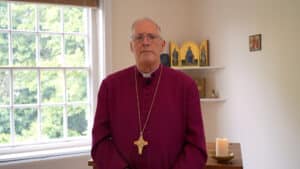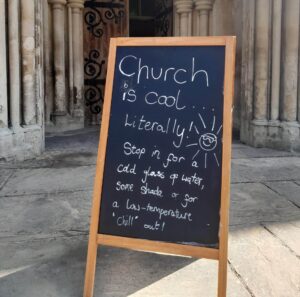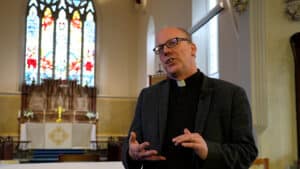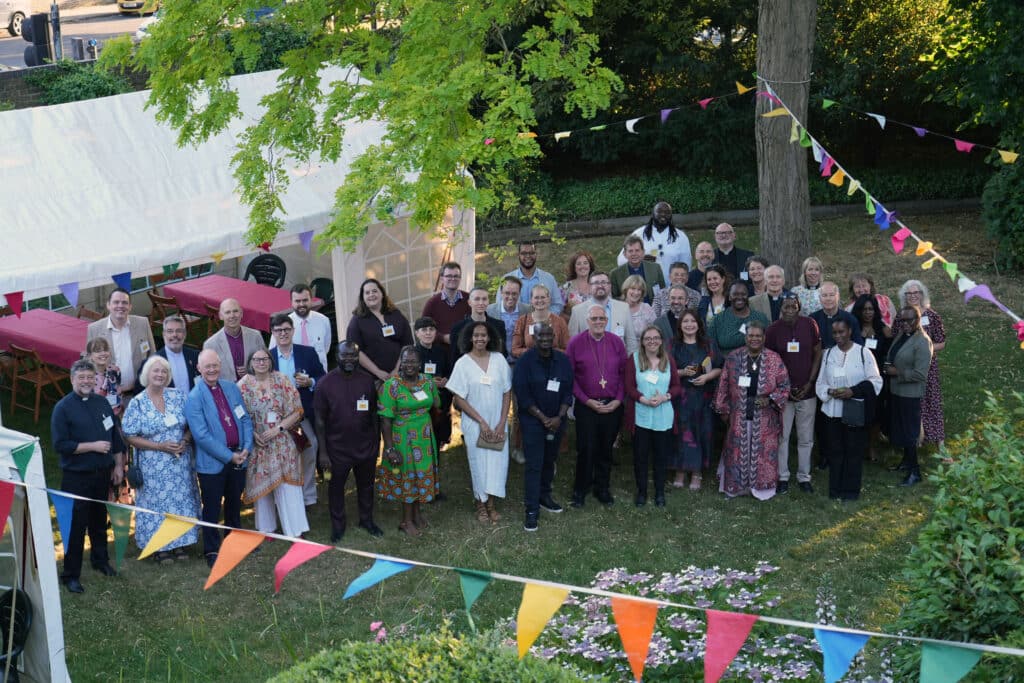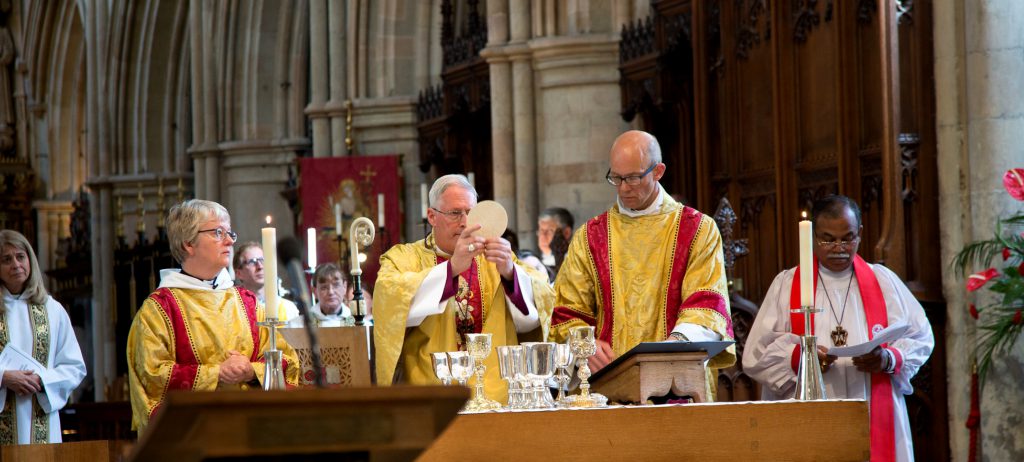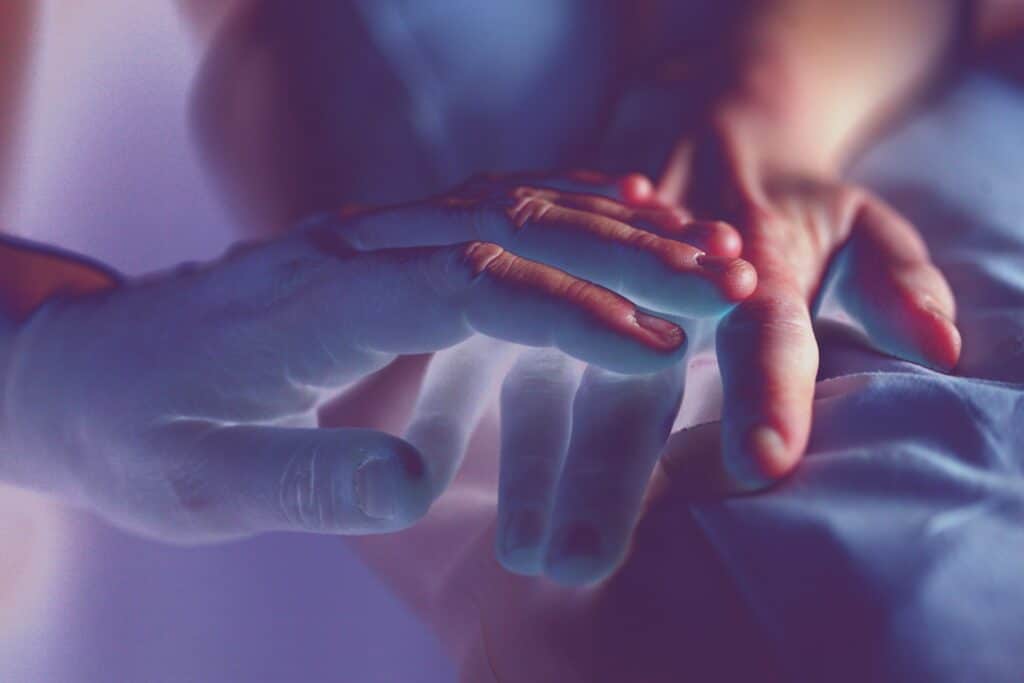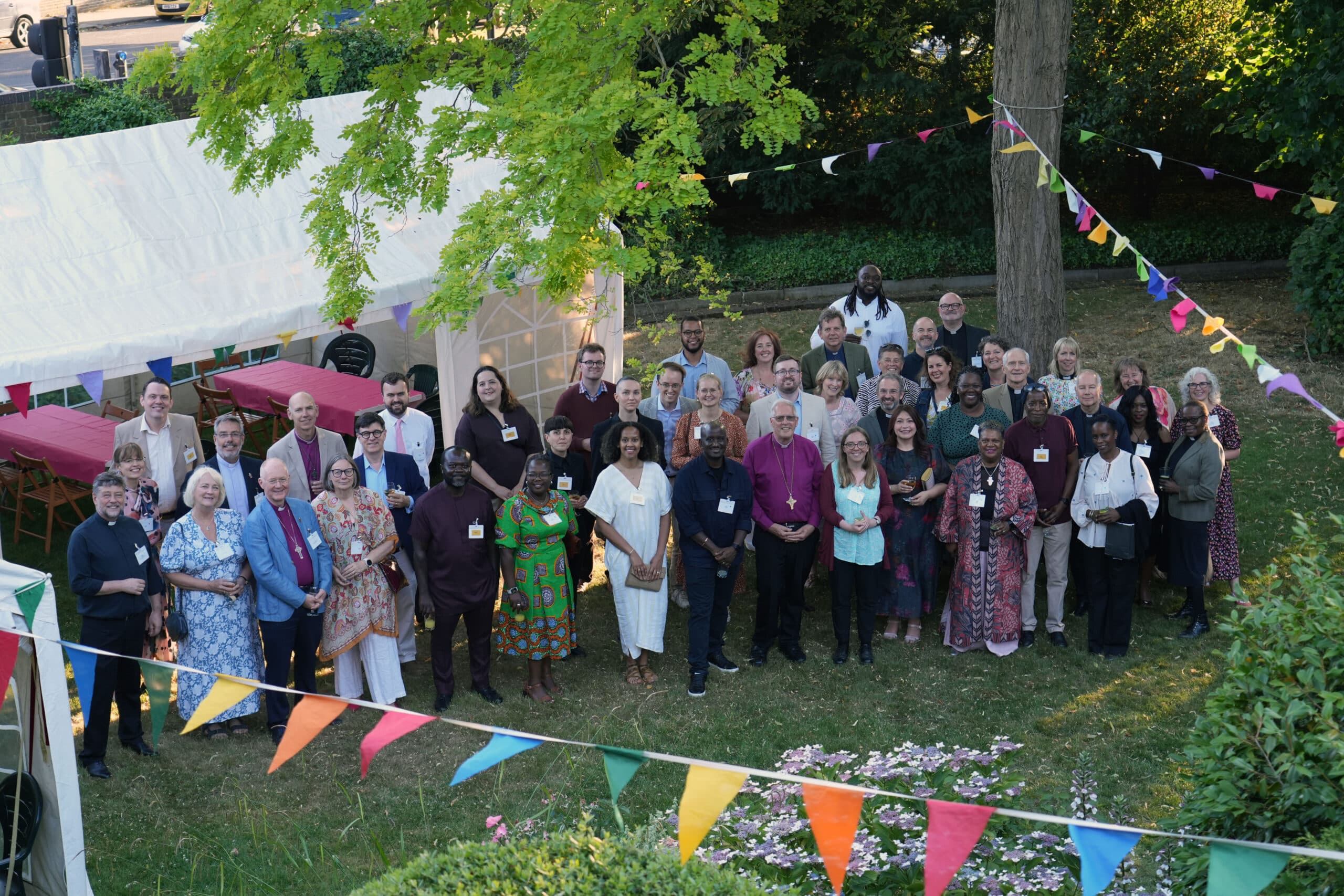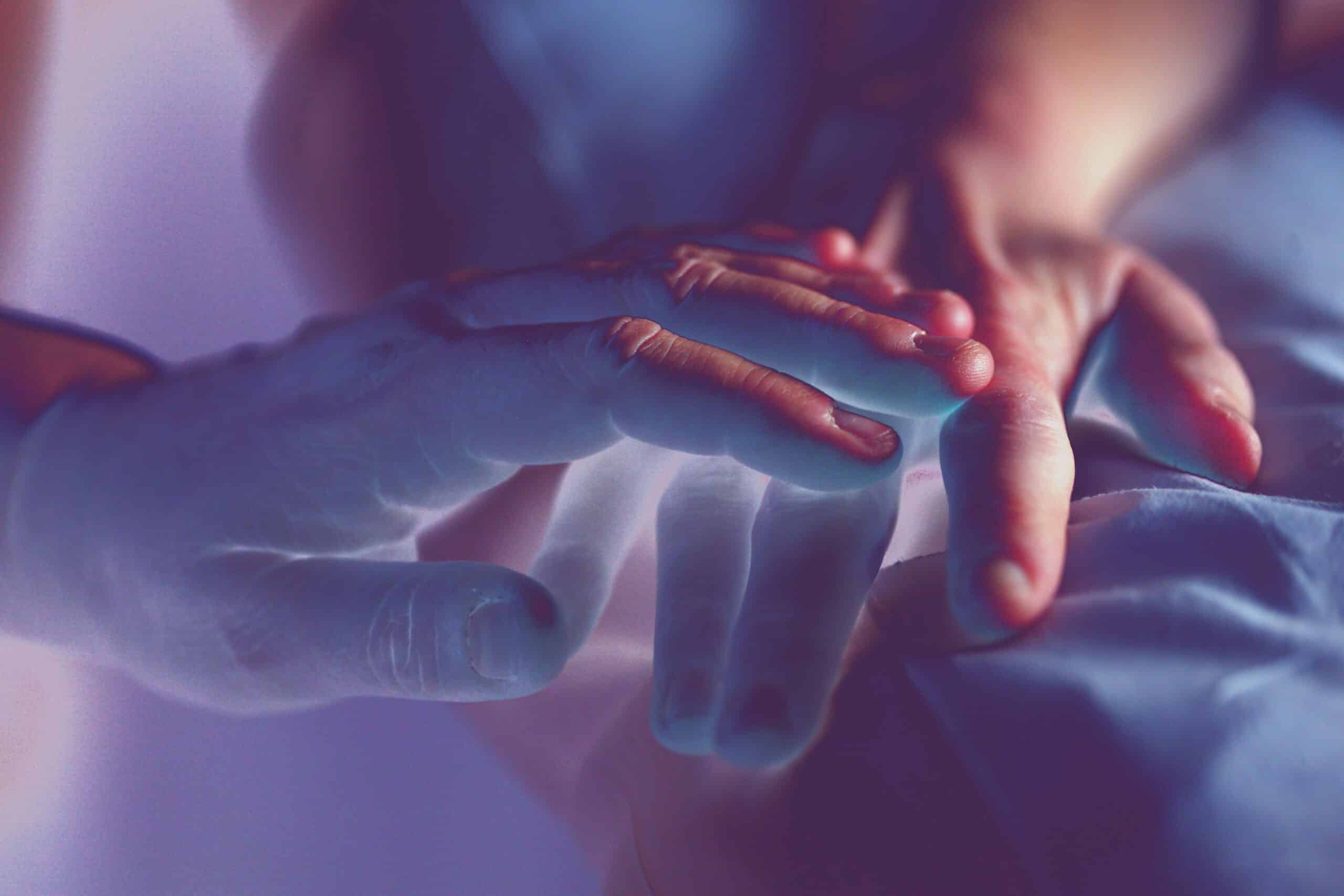“Injustice anywhere, is a threat to justice everywhere.” Martin Luther King, Jr.
During the second week of February, pupils and staff at Bishop John Robinson CofE Primary School in Thamesmead learned about and celebrated Freedom Week. In 2020, we decided we wanted a clear ethical mission for the school: to enable all to become agents of change in tomorrow’s world. Our mission would be to give pupils aspirations, help them see a positive purpose for our British Values and to engage in the wider work of the global church. Our local area has strong links to the shipbuilding industries and docks of the Thames, and our school logo features a boat. All of our classes are named after Christian values (Friendship, Thankfulness, Hope etc) and our Year 6 class is named Justice. We decided to be courageous advocates of justice! A large proportion of our school community (pupils, staff and families) have links to west Africa, and so the stage was set: our ethical mission would focus on making a change for families in west Africa to gain justice, with a boating theme!
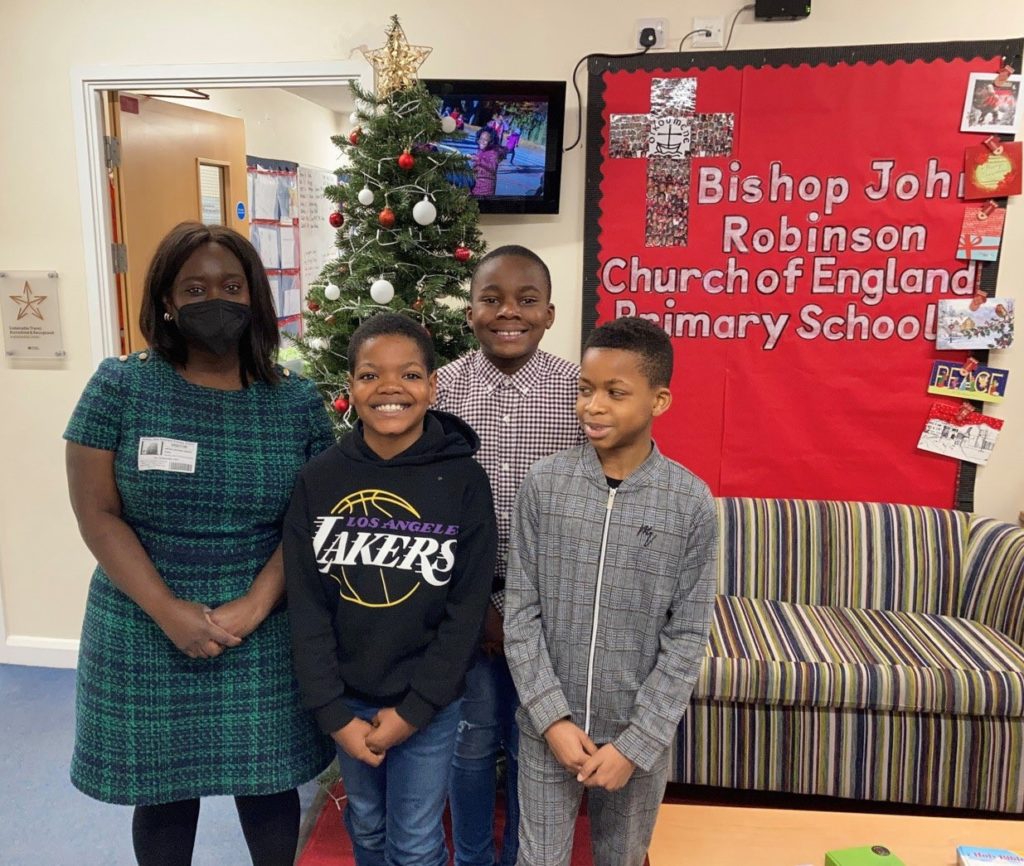
We contacted and spoke with International Justice Mission, a charity whose aim is to rescue those trapped in modern day slavery, provide rehabilitation, convict traffickers and strengthen judicial systems; one of their projects is based on Lake Volta in Ghana. We shared this with staff and pupils, and very quickly discerned that this was the right direction for us as a community. We felt it was right to share such a difficult topic with our pupils, in an age-appropriate way, but with a definite focus on what we can do about problems in the world.
“If you want to make the future better then you need to take action today.” Akiroq Brost
Our ethical mission towards Justice had begun and Freedom Week arrived: staff and pupils were able to explore a wide range of issues and concerns around the problem of modern-day slavery through a myriad of different activities. One example was with our Year 5 pupils, who took part in Christian Aid’s Paper Bag Game – a simple activity of making paper bags for money to pay for accommodation and food; yet the pupils very quickly see how buying the materials, buying food, paying for rent etc., very quickly mounts up – let alone when additional problems are added to the scenario – sickness, civil unrest etc. Our Year 6 pupils used clippings, reports and images from the media to build contrasts between justice and injustice in popular society; comparing those typically found in Britain with those from their own cultures and backgrounds. Our Year 2 pupils learned about child labour of sorting rubbish, linking to their previous learning about pollution and littering; drawing powerful understanding about the importance of learning and play. Our Year 3 pupils were incredibly creative, and made a patchwork piece of artwork, sewn together, showing their different views of freedom and the aspects of freedom they enjoy.
We invited, and were delighter to receive, Obena Appong-Osare, Shadow Exchequer Secretary to the Treasury and Member of Parliament for Erith and Thamesmead. She visited our school and met with pupils to discuss our ethical mission. It was quickly clear that the expected questions of “how did you become an MP” were not going to be tabled, but instead questions about the plight of children in western Africa, the difficulties facing young, black and African people entering into British politics, the role of women within political society and the steps required to bring a discussion before parliament. Obena was incredible: she spoke passionately with the pupils, inspiring them to stand and make their voices heard; she represented what our pupils want to be, confident in themselves and compassionate for others; and she was humble, a genuine humility that our pupils recognised as being an ordinary person doing extra-ordinary things for the benefit of others.
“Maybe it’s wrong-footed trying to fit people into the world, rather than trying to make the world a better place for people.” Margaret Talbot.
So, what are the next steps for our ethical mission? Our pupils have agreed that firstly we need to let people know what is going on in the world. We have been learning about the many white and black slave abolitionists, who outlawed slavery in the UK and beyond, and yet there are more slaves today than at any other time in human history. We have been learning about the democratic systems in the UK, and so we will be writing to our, and other, MPs to ask for their support alongside our petition for our government to increase and strengthen our anti-slavery laws. We are also writing to shops and supermarkets to ask them about their supply chains – do they know where they produce comes from? Do they know who is involved in the manufacturing / farming of those products? Do they know that every person in the production process is free?
As Headteacher, I have been so impressed with the maturity of our pupils, the engagement of my staff and the creativity our Freedom Week has demonstrated. We might not single-handedly end slavery, but our combined voices will be a force for good – but more importantly, my pupils will hopefully gain a sense of their role within British democracy, the value of their love and compassion for others, and the desire to make the world a better place.
Find out more about our church schools and the work of the Southwark Diocesan Board of Education at southwark.anglican.org/about-us/who-we-are/schools/.




